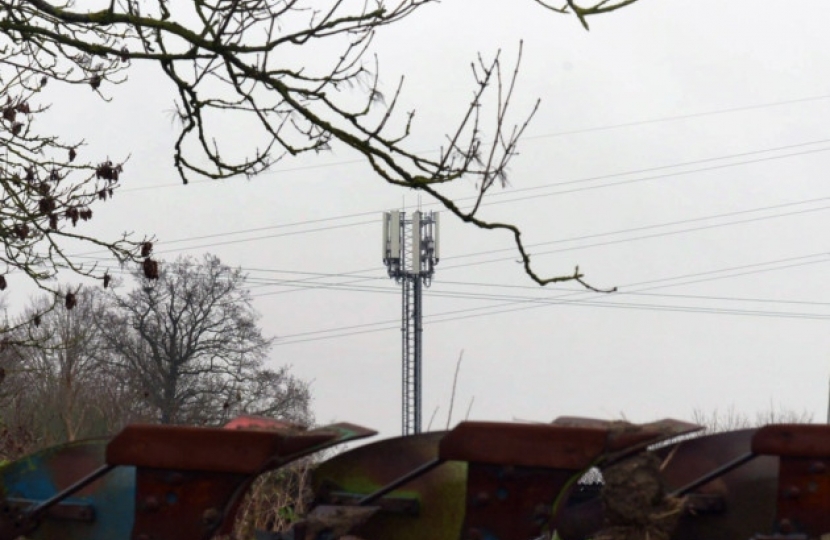
Only 16 masts have so far been put up nationwide, two of which are in Suffolk, costing the taxpayer £9.1m.
A Freedom of Information request has revealed that of the £9.1m spent on the project so far, £3m has been spent on private contractor Arquiva’s management costs and its extra costs such as legal fees.
While just the masts in Witnesham and Rattlesden in Suffolk have gone live, the Department for Culture, Media and Sport said facilities for Bildeston and Coddenham were set to be built before next year’s March deadline.
A scheme in Worlingworth had planning permission approved, but legal agreements could not be concluded in time. While in Boxford a scheme collapsed as a landowner withdrew from process.
The regional director for the Country Land and Business Association Ben Underwood said: “We are hugely disappointed in the outcome of the Mobile Infrastructure Project programme. We were led to believe that this would be of enormous benefit to the areas which are currently unable to get mobile access. The failure of this project does not reassure us that those rural areas will receive mobile connectivity in the near future.”
While South Suffolk MP James Cartlidge said: “These figures are not a surprise. We know from the experience of South Suffolk where two out of the three masts proposed for the scheme did not go ahead, that there have been many problems at a local level – beyond central Government’s control – stopping masts from being constructed.
“Hence, much of the budget has remained unused. However, we should not give up hope.
“Only last week in parliament we debated mobile coverage again and I was very pleased when the Ed Vaizey, the minister covering mobile phones, confirmed that he wants to ‘revisit’ the Mobile Infrastructure Project (MIP).
“I will be pushing him to do this and, if so, to look again at villages that lost out in the first round. But if we do get another bite for our worst not-spot areas, the district councils need to place far greater priority on the planning process to ensure as many people know about each proposed mast, minimising the risk of local opposition forcing applications to be with withdrawn, as happened in Boxford’.
The deadline for the project is March 2016 and a number of project have not secured planning permission in time.
A DCMS spokesperson said: “We understand this will be disappointing news for the local communities in areas where masts are not going ahead. We’re committed to making sure there’s better mobile coverage across the UK, and that people in rural areas are not left behind. Thanks to a landmark agreement we secured from all the Mobile Network Operators, areas – including parts of the East of England – currently with no mobile coverage, will be cut by two-thirds.”
Published in the EADT.
